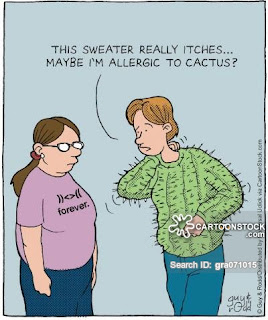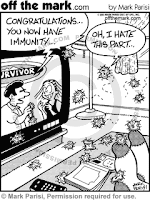Investigating Vaccinations
In class, we learned about different ways people try to get vaccinated. Currently, immunizations are given through shots. The serum contains dead or almost dead viruses that cause the disease. In "The Complete Idiot's Guide to Vaccinations" by , it says that once people contract smallpox and survive, they are immune to this disease. This talks about various other diseases, why it's important to get vaccinated, and what specific vaccines should be taken. It also talks about variolation. This is when some people would take infected material (secretions) from a person with a disease and rub it on a healthy person, hoping that the healthy person would become sick. They thought that contracting a disease from a sick person like this would be easier to deal with. This was a way of immunization for the Variola virus. The only problem about doing something like this is, the healthy individual is also able to contract whatever other diseases the sick person has. For example, if the donor of the infected sample has tuberculosis, there is a high chance that the healthy person can also contract this disease. Even though that the chances of people contracting diseases were high, variolation significantly lowered the death rate of small pox in those days.
Now that we know what the common method of vaccinating people back in the day was, it is also important to see which immunizations are important for certain people. In the website "The History of Vaccines", there is an article that gives a long list of vaccinations and who should be taking them. The site mainly talks about vaccinations. Any topic that relates to vaccines is found on the site. This article also talks about the certain virus or bacteria that causes the disease. For example, anyone who has been born after 1980 is required to get vaccinated for chickenpox (varicella). Anyone who does not provide proper records for immunizations should be vaccinated. This is crucial because this is highly contagious. Adults who do not have a good immune system are at risk. All the vaccines listed are ones that are highly common these days.
Reading both of these materials really did help me getter a better understanding of the whole immunization process and how diverse these viruses are. None of the materials portrayed being biased. Being able to see a list portrays how we can never be fully immune to every single virus. Doing everything we can to stay healthy is crucial.
Works Cited: Smith, Michael Joseph., and Laurie Bouck. The Complete Idiot's Guide to Vaccinations. New York: Alpha, 2009. Print.
"Vaccines for Adults." History of Vaccines RSS. N.p., 2015. Web. 25 Oct. 2015.
http://www.historyofvaccines.org/content/articles/vaccines-adults
http://www.stowetoday.com/stowe_reporter/opinion/letters_to_the_editor/vaccination-cartoon-disturbing-inaccurate/article_75c173f6-63ae-11e1-ad84-0019bb2963f4.html











